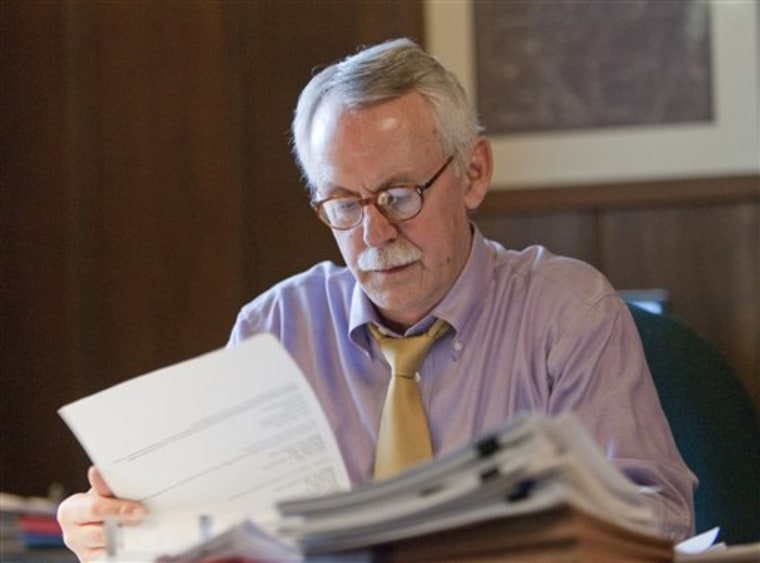When it comes to the $787 billion in federal stimulus money flowing from Washington to the states, it will cost money to spend money.
Nebraska's governor's office told lawmakers it expects to spend more than $1.2 million over two years to oversee disbursement of about $1.5 billion Nebraska stands to receive in federal stimulus funds.
Other states are in similar straits. But Washington — at least for now — isn't handing out money for states to hire auditors and accountants, and the stimulus law requires stringent reporting from states to ensure transparency and curb abuses.
"I don't really have a good solution of where to come up with the money," the Nebraska governor's chief of staff, Larry Bare, told lawmakers this week on the Appropriations Committee. Not doing so isn't an option: "We ignore doing a good job of that at our own peril," Bare said.
Under the law, if states miss a deadline or don't spend the money fast enough, they lose the cash. Vice President Joe Biden warned last month that if states misspend the money, "don't look for any help from the federal government for a long while."
But states across the country are asking how they're supposed to oversee the disbursement of billions of dollars intended to boost the economy with no budget to do so. At a conference last month at the White House, state officials asked whether they should use templates for reporting, and whether there's any way of centralizing the information among states.
The White House said help is on its way, and it is looking at ways for states to get more money more quickly for oversight.
"The administration has been working with state officials to tackle the oversight challenges that they are facing," said Tom Gavin, a spokesman for the White House Office of Management and Budget. "We want states to have the resources and the flexibility — on top of what is already in place — to make sure that Recovery Act funds are invested smartly to create jobs today and build a foundation for the country's long-term economic growth."
As with all federal money distributed to states, government rules allow states to allocate a portion for administrative costs. But states are complaining that the money isn't enough to cover the cost of increased oversight and reporting obligations, and that it may arrive too slowly to cover expenses they need to pay immediately.
In South Carolina, staffers are working nights and weekends.
"We're doing it on the cheap because we really don't have a choice," said Richard Eckstrom, South Carolina's comptroller general. Eckstrom is head of a task force that will set up a state system to track how federal stimulus money is used.
"We're not being paid to do it," Eckstrom said. "We're doing it with existing staff. We're doing it with existing technology."
In Colorado, state officials have complained they're trying to make stimulus spending transparent but haven't been given money for a Web site or publicist.
Don Elliman, Colorado's economic development director who also leads a volunteer oversight panel set up to audit Colorado's spending, called sorting through the stimulus particulars "a major time suck."
"We're doing the best we can," he said. A spokesman for Colorado Gov. Bill Ritter says Colorado officials have no estimate for how much they'll spend administering stimulus spending.
In Nebraska, coordination costs include salaries for four new staff members: two accountants, an information officer and a budget analyst.
Every state is moving through the same process at the same time, said Todd Haggerty, research analyst with the National Conference of State Legislatures, so if one state solves a problem, another state could benefit.
But with new directions coming daily from Washington, "it's definitely a moving target," Haggerty said.
Meanwhile, Nebraska, like many other states, faces a budget shortfall, and some lawmakers are skeptical of the high cost.
"There's no rubber stamp on this," said state Sen. Heath Mello of Omaha. "We're going to have to ask more questions and they're going to have to provide more information as we go down the road."
Other lawmakers wonder whether the state is being realistic. But they have different concerns about the cost of distributing all the stimulus money.
"The amount of money coming is overwhelming," said Sen. John Harms of Scottsbluff. "Is this enough?"
